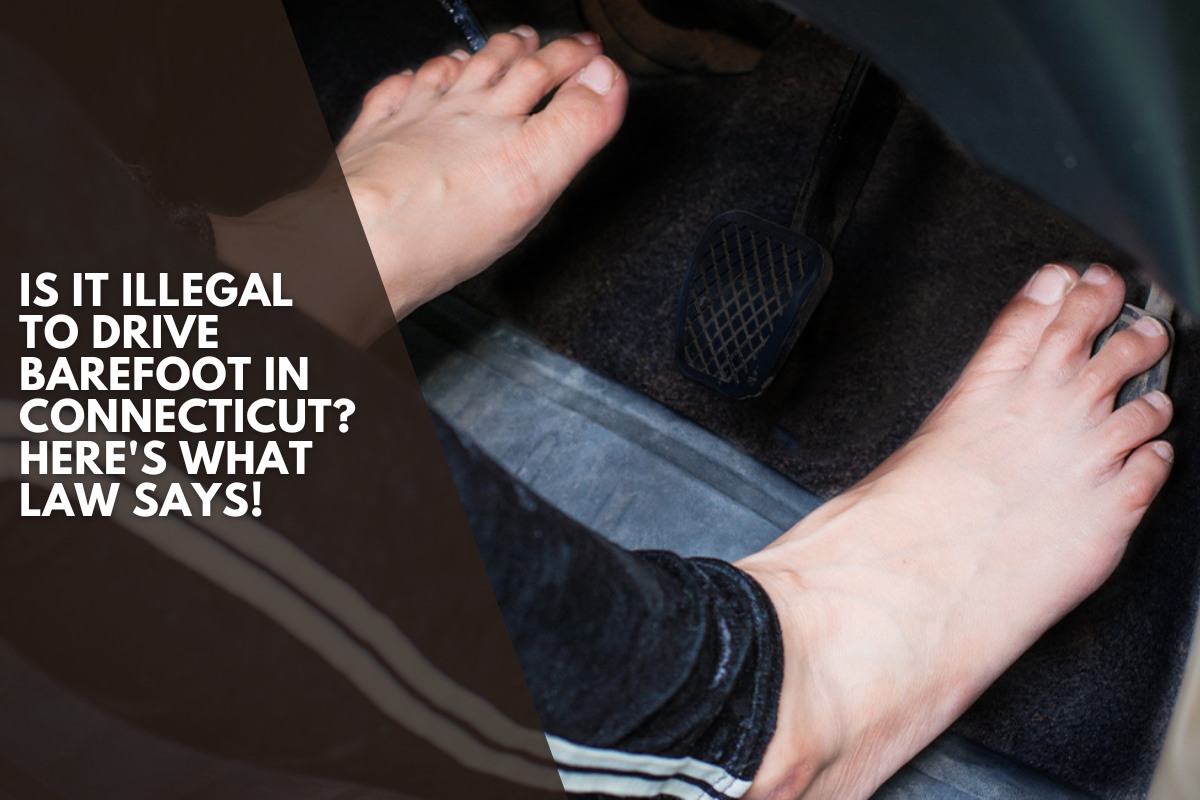Legal Status of Driving Barefoot in Connecticut
If you’ve ever wondered whether it’s illegal to drive barefoot in Connecticut, the answer is clear: It is legal to drive barefoot in Connecticut. Unlike some misconceptions circulating widely, Connecticut does not have any specific law that prohibits driving without shoes. Drivers in the state are free to operate vehicles barefoot without fear of breaking the law.
Why the Misconception?
Many people mistakenly believe that driving barefoot is illegal everywhere in the U.S., but that’s simply not true. No state, including Connecticut, has laws explicitly banning driving barefoot. This myth likely arises from safety concerns and common warnings given by driving instructors and law enforcement, but those are recommendations rather than enforceable laws.
Safety Considerations When Driving Barefoot
Although driving barefoot is legal, it is widely discouraged for safety reasons. Footwear provides important traction and control over the pedals, improving your ability to react quickly and apply the correct pressure to both the accelerator and brake.
Bare feet can sometimes slip or lack the firmness needed, which could increase the chances of accidents. Emergency situations require quick and precise pedal control, and footwear helps ensure better grip and protection for your feet in case you need to exit the vehicle quickly.
What Connecticut Police Typically Say
Police officers in Connecticut prioritize safety and may advise drivers to wear proper shoes while driving. If someone is pulled over for driving barefoot, it’s usually to remind or educate them about the increased risks rather than to penalize them. The aim is to prevent accidents and injuries on the road, making sure everyone stays safe.
What to Know About Accidents While Driving Barefoot
While it’s legal to drive barefoot, complications can arise if you are involved in an accident. If authorities determine that driving barefoot contributed to loss of control or reckless behavior, it could potentially be used as evidence of negligence or recklessness. This could influence insurance claims, liability, and possibly legal consequences after a crash. Therefore, wearing proper footwear is wise to minimize risks and protect yourself legally.
Advice From Driving Instructors
Driving instructors across Connecticut and other states generally recommend wearing appropriate footwear while driving. Shoes with good grip and support provide better pedal control, responsiveness, and safety. Many instructors teach new drivers to avoid driving barefoot, flip-flops, high heels, or any footwear that compromises safe pedal use to build good driving habits from the start.
Legal but Not Always Safe
Driving barefoot in Connecticut is legal.
No specific law prohibits barefoot driving in the state.
It is safer to wear proper, supportive shoes for better control.
Barefoot driving may be cited indirectly if it contributes to reckless driving or accidents.
Authorities focus on driver safety, often advising against barefoot driving.
Best practice is to wear appropriate footwear anytime you drive.
Though legally allowed, driving barefoot in Connecticut isn’t the safest choice you can make on the road—and experts and officials agree on that. Wearing proper shoes ensures you maintain full control and reduce risk, keeping yourself and others safer behind the wheel. So, next time you think of kicking off your shoes for a drive, consider the safety benefits of keeping them on instead.
Sources
[1](https://www.800perkins.com/faqs/can-i-drive-barefoot-in-connecticut/)
[2](https://www.directauto.com/learning-center/driving-laws-and-safety/is-it-illegal-to-drive-barefoot)
[3](https://insurify.com/car-insurance/knowledge/is-it-illegal-to-drive-barefoot/)
[4](https://teamjustice.com/is-it-illegal-to-drive-barefoot/)
[5(https://www.reddit.com/r/Connecticut/comments/6lo246/driving_barefoot_is_completely_legal_in_ct/)











